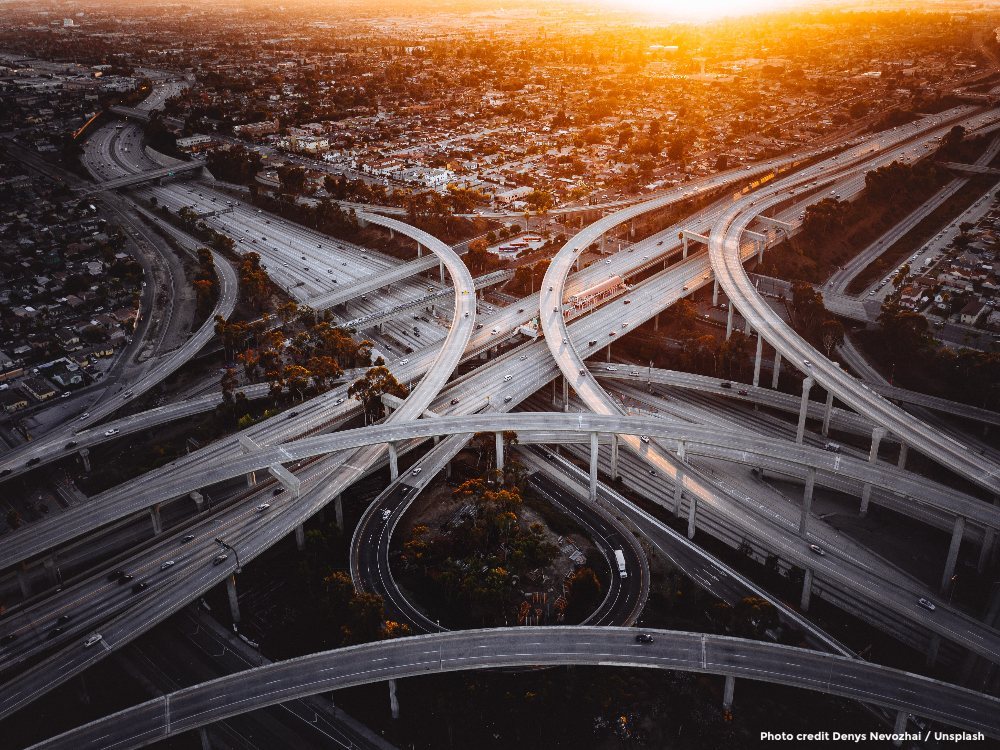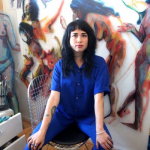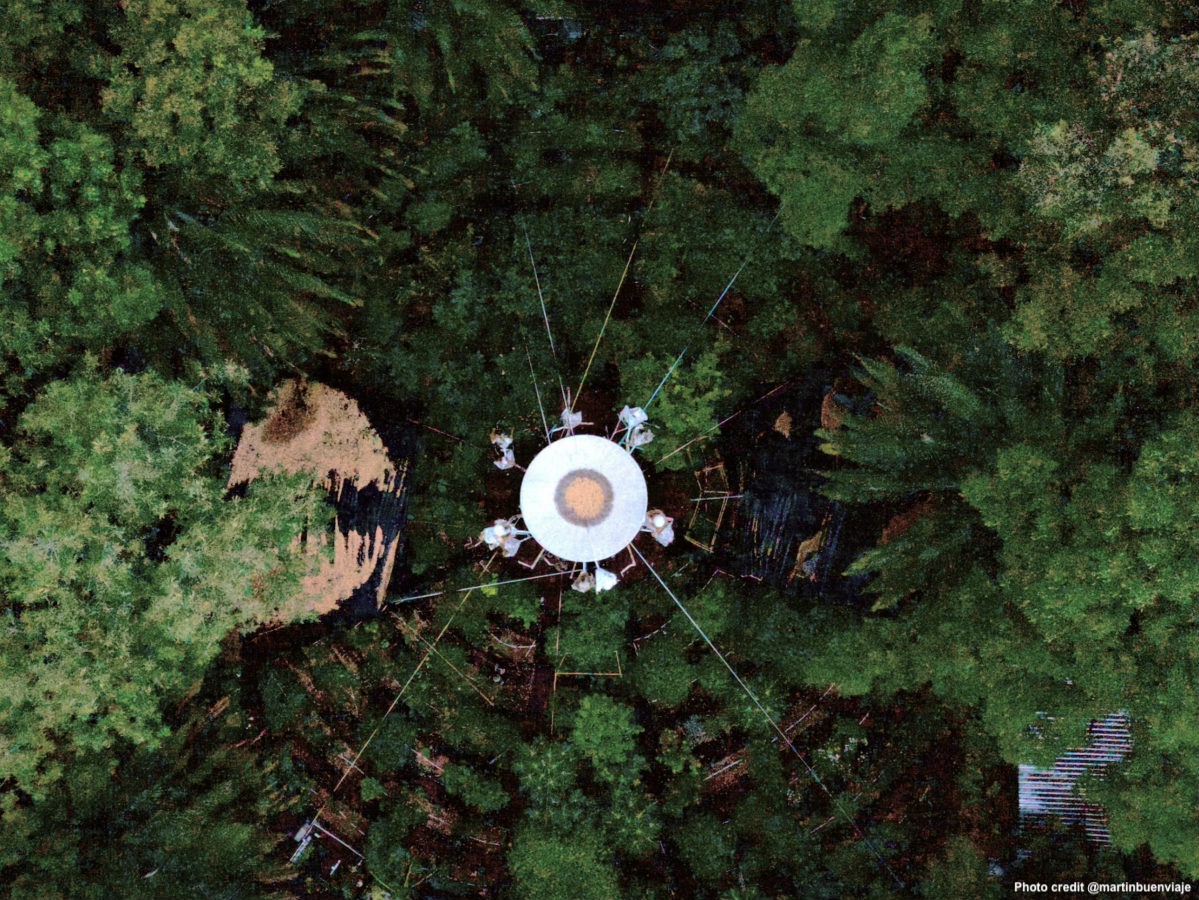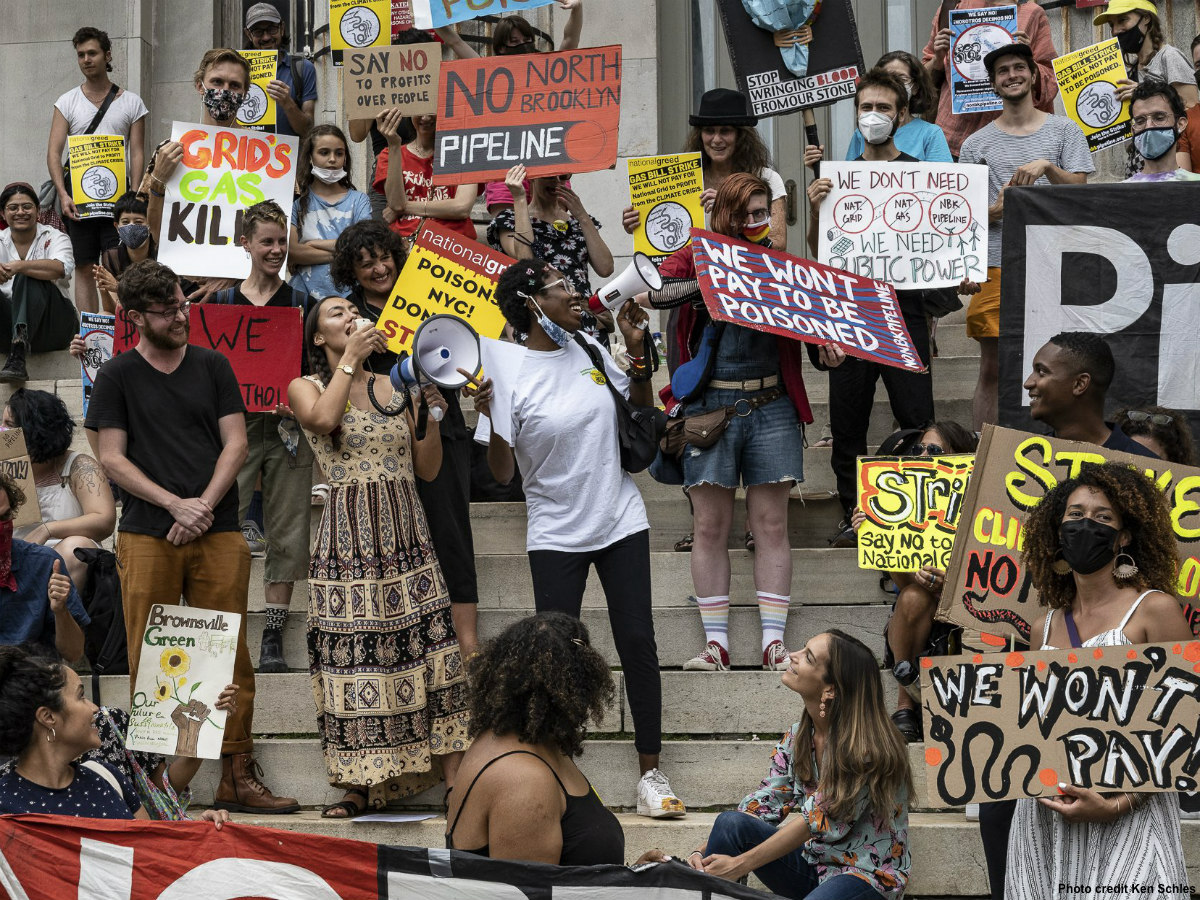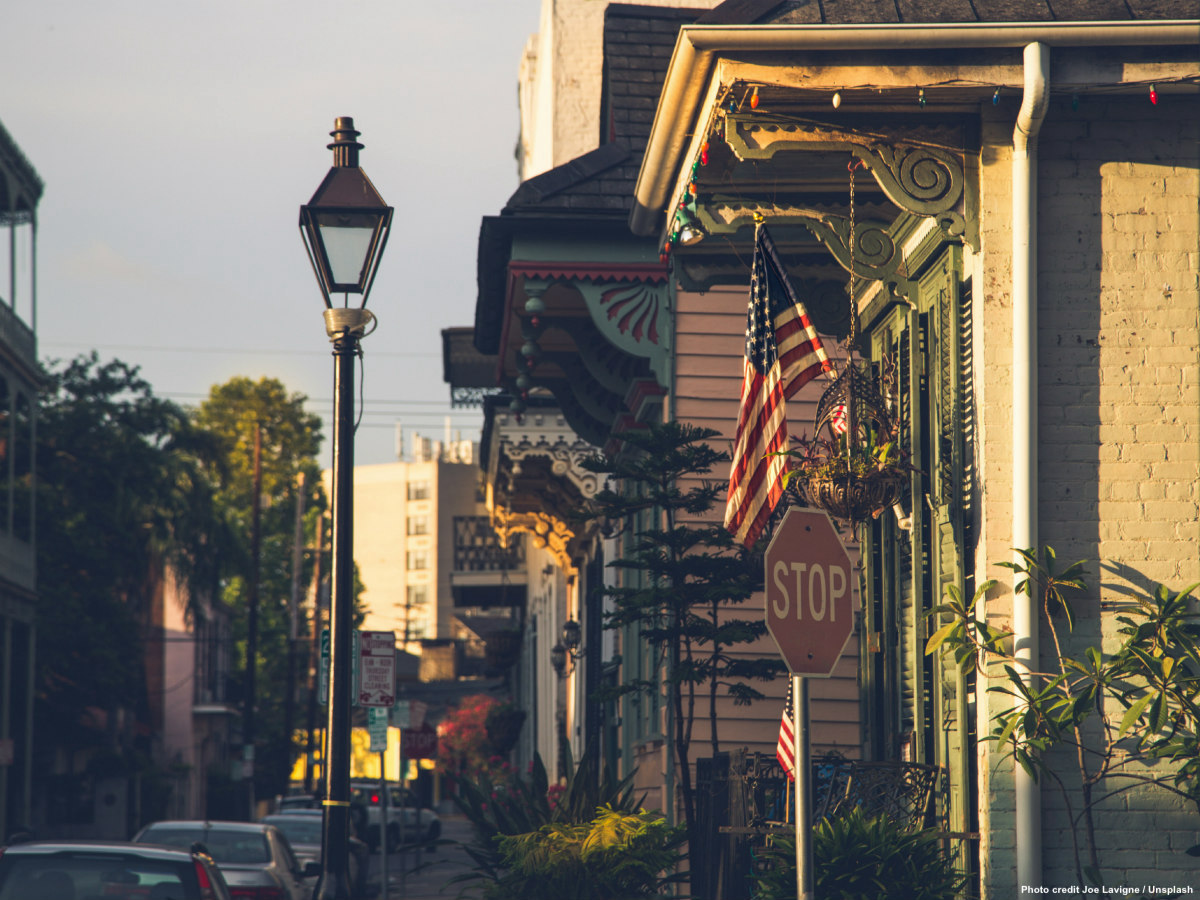Grown from the erasure of edges, an urban guerrilla garden in Los Angeles had no entry gate. Medicinal herbs and vegetables to harvest grew in donated soil in recycled planters along the sidewalk. People could contribute and take, build and prune, learn and teach as they happened to pass by. Every day this community garden had a different landscape, which mirrored a type of processual healing interweaving the Earth and humans, fertile soil for sustainable degrowth pathways in tandem with physical and mental regeneration.
In August 2020, in the midst of the pandemic, of housing and food insecurity, and the ecological crisis, I started this guerilla garden with my houseless neighbors at Echo Park Lake. “Radical Gardening” was planted at this highly-trafficked, iconic park at the intersection of rapid gentrification and increasing houseless encampments, in Los Angeles, the most polluted city in the US by ozone, with one of the largest homeless populations in the country. I have visited this park almost every week, if not every day, for the past 7 years. It is illegal to start a garden without a permit, yet exclusive permits are nearly impossible to obtain. Knowing that it was a risk, we took things into our own hands during a time of crisis and necessity.
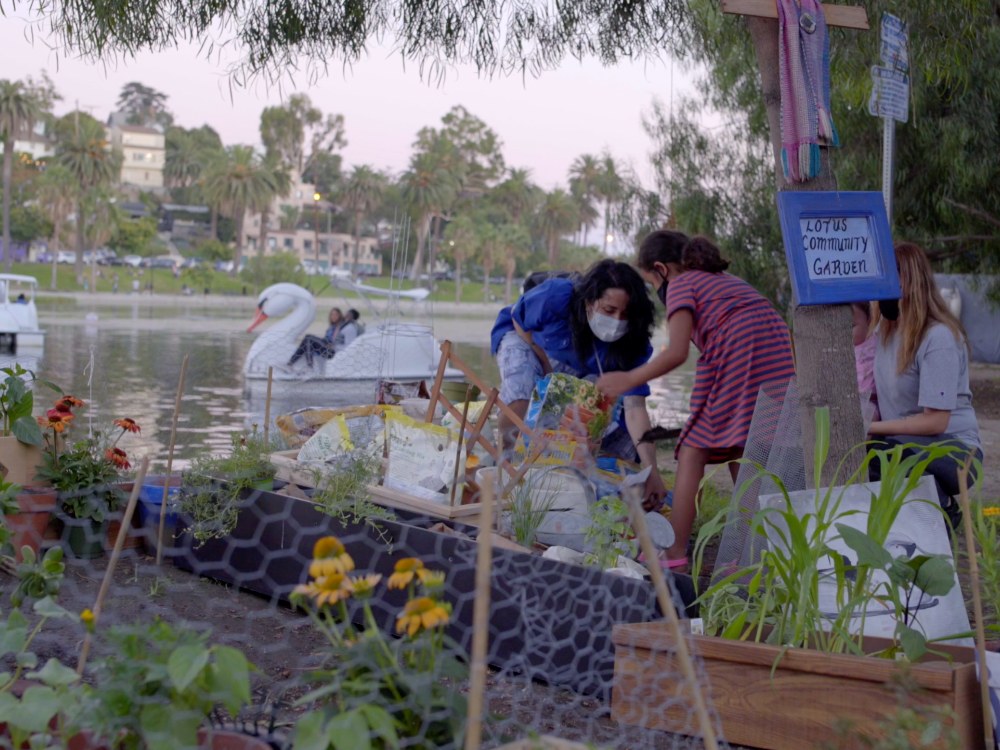
This garden rose up on the ground where an 18-year-old houseless girl named Brianna died, her death never investigated due to lack of the city’s care. Building community from that very moment of dehumanization, we came together with soil and plants which were either foraged or donated, and we planted every seed with hopeful intentions of futures we imagined.
Beautifying flowers planted by people dehumanized from what is aesthetically acceptable, nourishing vegetables planted in a place marked by food scarcity and mental instability, strangers working together on ground that has experienced violence, native plants grown upon these layers of compost, soaking up the carbon dioxide from the highly-trafficked freeway nearby.
All of the plants were donated or foraged by the community, starters of seasonal fruits and vegetables, cuttings of medicinal herbs, extra seeds from an accumulated bunch. I shared knowledge with anyone who wanted to be involved about the healing properties that the plants provided. As Vandana Shiva says, “Food is the very currency of life…eating is an ecological act”. Even beyond the nutritional elements, the coming together and being present with humans/plants/soil has nourishing emotional effects through the relationality of reciprocity itself.
Healing Gardens in cities are essential to the regenerative future of our planet
Many of the houseless folks said how therapeutic and fulfilling it was to plant new life and watch it grow right before their eyes, and to harvest and eat what they grew. Also to see kids, who planted their first seeds in pure excitement. They built raised beds thanks to the willing help of friends and strangers, and alongside befriended neighbors in a process of nondiscriminatory mutualism. This garden was not built by city planners or landscapers, but by artists and plant-lovers who acted upon a neighborly need through blooming mutual aid, taking the compost of loss and struggle to create new life.
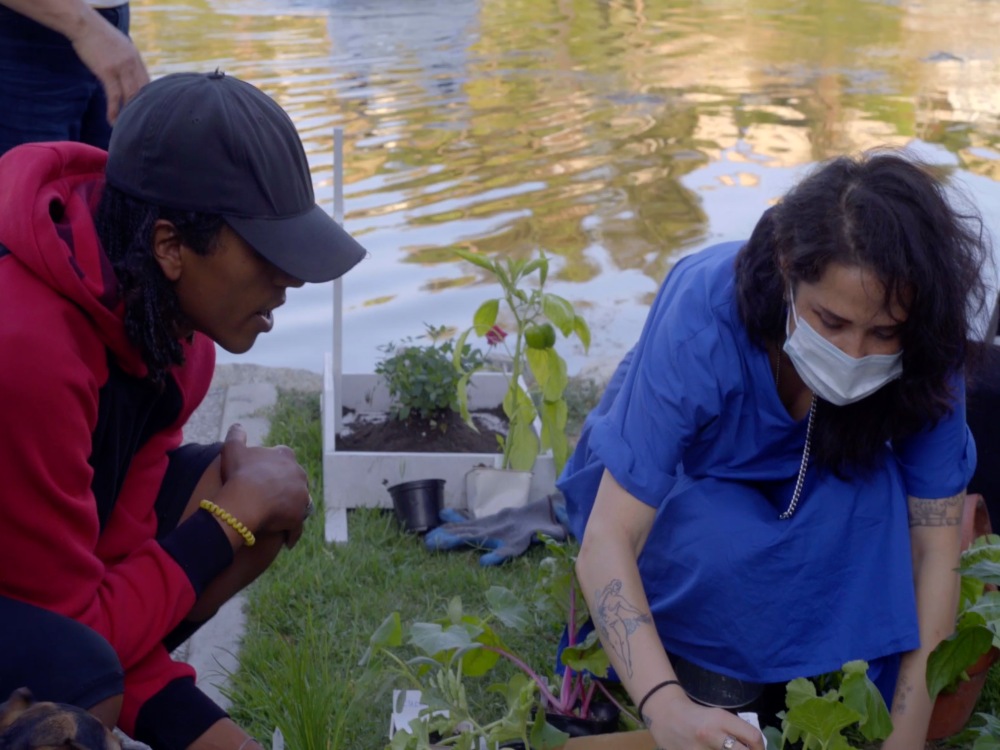
The significance of sustainability not only lies in environmental practices combating the climate crisis but in the daily practice that can uphold joy and hope against streams of struggle and loss which can feel perpetual. As feminist scholar Donna Haraway says, “the practices of joyful pleasure are essential to the arts of living on a damaged planet”.
From the beginning of the planting, we were worried about starting a guerrilla garden in a place where the city could tear it down at any moment, but as our houseless friends and collaborators pointed out, that is how they feel about their own homes, as they built up a stronger community, their shelters were at risk of being removed at any moment.
Eventually this day did come. On March 25th, 2021, squads of police came to displace all of the houseless tents and fence up a barricade around the whole park, and with that the garden, for “renovation”. A mass of support for the community at Echo Park Lake protested to defend the park, which only led to unnecessary arrests. While the LAPD was creating a barrier around the lake, amidst their inhumane stoicism and desensitized aggression, one cop actually told me he liked the garden. The garden was somehow this point of empathy across ideological sides in that moment.
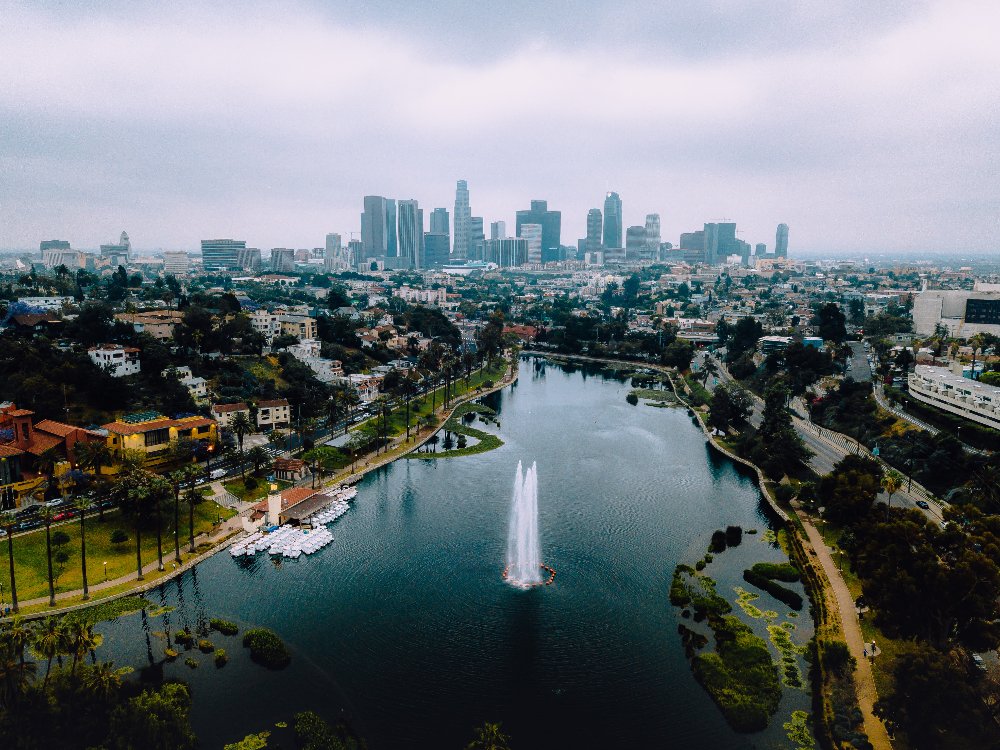
This garden at the edge of Echo Park Lake provided food and sustenance, but underlying this was a political statement that healing gardens in cities should be more accessible, and that this accessibility extends to food sovereignty which can help heal the Earth. The praxis of gardening is a protest against the financialization of nature and the colonization and exploitation of land. Community gardening and healing gardens undoes Big Agricultural harms through regenerative practices and restoration of biodiversity in cities, something which should be considered one of our most precious planetary resources for it can take tens of millions of years to replenish.
Gardening is where healing the body and healing the planet meet, in a landscape of rebuilding futures through cultivating seeds. Cultivation of decentralized healing, rethinking what it means to be human, and intentional practices of degrowth.
A month later the park reopened and the tent homes were gone, the garden was gone, and the park looked like it had the life sucked out of it, barren enough for the city’s standards by its half-a-million dollar “renovation” cost. But this wasn’t a defeat. It wasn’t about permanence, it was about cultivation and transformation. Not only had it lasted longer than expected, but this experiment of hope grew every day despite all the factors against it.
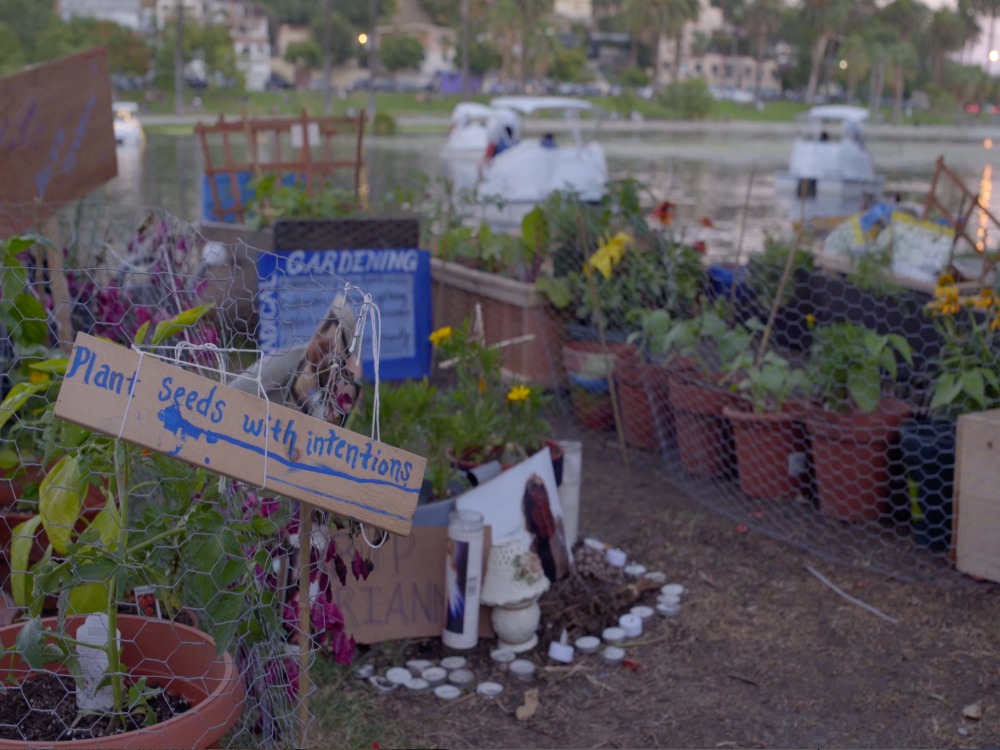
June 2021- there is a squash blossom coming up from the ground where the garden was torn down, from seeds that had fallen there months ago, and it is still growing now, on top of all the loss. They tore down the homes, the plants, the donated planter boxes and soil and vegetables and fruits, but they didn’t tear down the hope and care and uprising that will continue.
They could not tear down the seeds that were planted, the fertile soil for cities to fund healing gardens instead of police, write inclusive gardens into their urban plans and integrate care and ecological awareness into their architecture. The blossom continues to grow now, and we will plant new gardens in other forms, and normalize decentralized care and healing for communities and for the Earth.
